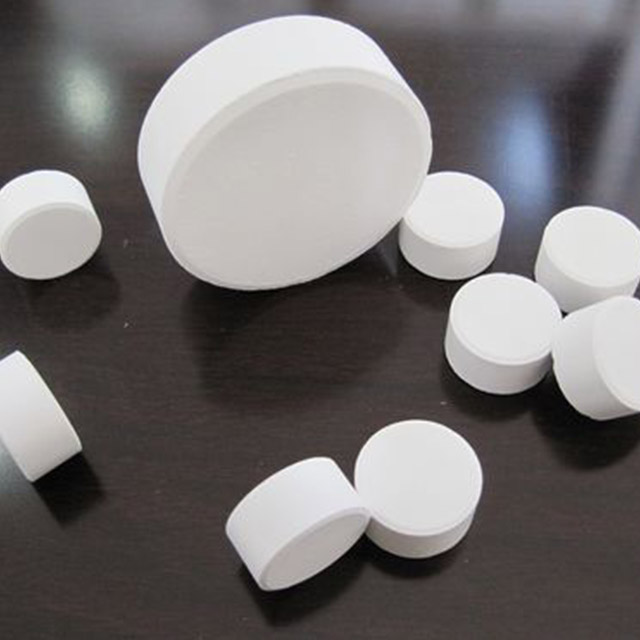Disinfectant Water Treatment
Types of Disinfectant in Water Treatment
Dodecyl Dimethyl Benzyl Ammonium Chloride, a cationic surfactant and biocide
Hydrazine hydrate is a colorless liquid compound used as a versatile reducing agent
Powerful disinfectant with broad-spectrum antimicrobial properties
Powerful and versatile chlorine-based solution for sanitation
Powerful oxidizing agent for effective sanitization and disinfection
Powerful chlorine-based disinfectant and sanitizer for various applications
Powerful disinfectant and sanitizer with strong oxidizing and antimicrobial properties
Effective biocides for microbial control in various applications
Oxygen-based bleach for powerful stain removal and disinfection
What is Disinfectant in Water Treatment
Disinfectants play a crucial role in water treatment by eliminating or inactivating harmful microorganisms present in the water. They are chemicals or physical agents that are applied to water to destroy, deactivate, or control the growth of pathogenic microorganisms, including bacteria, viruses, and protozoa. The goal of disinfection in water treatment is to ensure the safety and potability of the water supply.
Common disinfectants used in water treatment include chlorine, chloramines, ozone, ultraviolet (UV) light, and hydrogen peroxide. Each disinfectant has its own unique mode of action and effectiveness against specific microorganisms. The choice of disinfectant depends on factors such as the nature of the water source, the target microorganisms, and the required level of disinfection.
Disinfectants are typically added at specific points in the water treatment process, such as after coagulation, sedimentation, and filtration, to ensure thorough disinfection. The dosage and contact time required for effective disinfection vary depending on the disinfectant used and the quality of the water being treated.


Importance of Disinfectant in Water Treatment
- Prevents waterborne diseases
- Protects public health
- Controls and eliminates harmful microorganisms
- Maintains microbiological quality of water
- Helps comply with regulatory standards
- Adds redundancy to the treatment process
- Provides residual protection in the distribution system
- Ensures safe and potable water for consumption
Purpose of Disinfectant in Water Treatment
The purpose of disinfectants in water treatment is to eliminate or inactivate harmful microorganisms that may be present in the water supply. Here are the key purposes of disinfectants in water treatment:
- Microbial Control: Disinfectants are used to control the growth, reproduction, and activity of microorganisms in water. They target and destroy bacteria, viruses, protozoa, and other pathogens that can cause waterborne diseases.
- Disease Prevention: By effectively eliminating or inactivating pathogens, disinfectants help prevent the transmission of waterborne diseases and protect public health. This is especially crucial in areas where access to safe drinking water is a concern.
- Public Safety: Disinfectants ensure that the water supplied to households, communities, and industries is safe for various purposes, including drinking, cooking, bathing, and other domestic uses. They provide a critical barrier against potential microbial contamination.
- Compliance with Standards: Disinfection is often a regulatory requirement in water treatment. Health agencies and governing bodies establish standards and guidelines for water quality, and disinfection is a key parameter to meet those standards. It ensures that treated water meets the necessary safety requirements.
- Residual Protection: Disinfectants that leave a residual in the water distribution system provide ongoing protection against microbial regrowth and contamination. This residual ensures that the water remains safe as it travels through the distribution network to reach consumers’ taps.
- Emergency Response: Disinfectants are essential during emergency situations, such as natural disasters or waterborne disease outbreaks. They can be quickly applied to disinfect contaminated water sources and prevent further spread of illnesses.
Disinfectant in Water Treatment Manufacturers
We are manufacturers of high-quality disinfectants for water treatment. Our expertise, advanced facilities, and commitment to quality enable us to deliver reliable and effective products. We offer a range of disinfectants tailored to meet the diverse needs of water treatment facilities, municipalities, and industries. Our goal is to provide safe and clean water by eliminating harmful microorganisms.
Our water treatment chemicals include flocculants, scale inhibitors and dispersants, corrosion inhibitors, Bactericidal Algicide, sewage decolorizing agents etc.
- The fastest can be shipped within seven days to the port of China
- If you are not satisfied with the product and service, you can return it
- Our company has passed SGS field certification inspection










